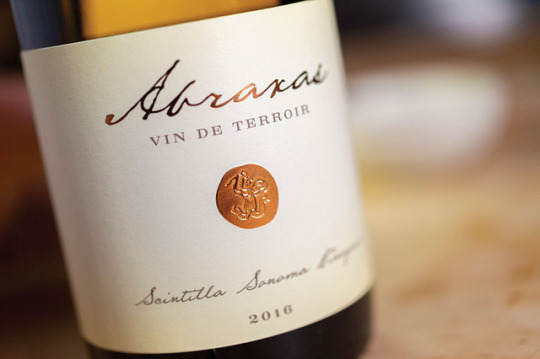#slowwineguide
Photo

Slow Down... for Great Wine!
What makes a great wine? Is it based on flavor profile? Perceived quality? Scarcity? How about score? Does that matter anymore? What about how the grapes were farmed and the wine was crafted… does anyone care? It’s always baffled me how a wine that can be considered a luxury product can be grown using farming methods designed to bring in grapes at the lowest cost… especially when those methods are toxic to the environment and to people in contact with it. Almost thirty years ago, we observed that the use of glyphosate (a common ingredient in commercial herbicides) was destroying the rhythm of nature by disrupting microorganisms, worms, mycorrhizal fungi and the overall tilth of the soil. But more, we suspected it had the potential to be a carcinogen and we wanted no part of it. We did not want to fear our food and we did not want to foist a potentially toxic product on consumers under the guise of a luxury wine.
When we decided to farm organically in 1990, it wasn’t enough to just grow organic grapes; we wanted to learn how to make a better wine organically. That was when RSV winemaker Jeff Virnig introduced me to the teachings of Rudolph Steiner and the concepts of Biodynamic farming. The thing that stood out to me was the idea that it was the farmers responsibility to “heal an ailing earth” by mimicking the forces of nature to compensate for the damage inflicted by forcing our will on the land. The idea was to create an environment where the vine could thrive and access the nutrients from the soil that it needed, when it needed it, and not be dependent on human input for its survival. And if you grew a superior grape, you could craft an elegant, complete wine with less intervention in the cellar.
It seems that the time has come for conscientiously farmed wines to have their spotlight moment. We have seen the “Natural Wine” movement have an impact on restaurant wine lists, but just because a wine is farmed and produced conscientiously, it does not necessarily mean that it is going to be great… or even enjoyable. Now there is a guide that attempts to give a shout out to not only “Great Wines” but conscientiously grown and produced wines. It is called the Slow Wine Guide. At one time it only considered Italian wines but has now expanded to California and Oregon with a clearly defined mission:
"… With its publication, the editors-in-chief Giancarlo Gariglio and Fabio Giavedoni not only abandoned the score-based formula that had dominated the field for more than 20 years but they also adopted a wholly new and innovative set of criteria. For the first time, the pioneering Italian wine critics looked not just to the quality of the wines: They also took into consideration the wineries’ sustainable farming practices and the winemakers’ “Slowphilosophy,” as Gariglio has put it, “which continues to be increasingly important to consumers in wine and food globally."
We are proud that RSV has been recognized as a Slow Winery and Abraxas has been singled out as a “Great Wine” for the 2019 guide… it only took 35 years to become an overnight sensation in the Slow Wine world.
1 note
·
View note